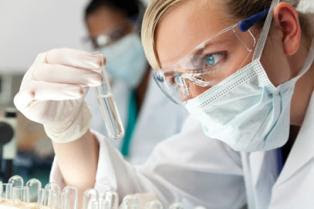Mankind has forever been taming and controlling many forms of life to
serve human purposes. This dates back to basic agriculture and animal
farming, where humans created controlled environments to domesticate
animals and cultivate plants for nourishment, industry, and eventually
medicine. With these older processes, we did not do much to actually
alter the biological organisms we worked with.
With advancements in technology, we have learned to biologically alter or modify living organisms to further advance our capacities to feed ourselves and heal ourselves, among other things. This process is known as biotechnology, or biotech for short. It is responsible for many of our greatest achievement in understanding, controlling and treating many medical conditions in the pharmaceutical industry. Because of the complexity and sophistication of this field, it requires extensive clinical research in order to avoid many unpredictable and potentially harmful negative consequences.
With advancements in technology, we have learned to biologically alter or modify living organisms to further advance our capacities to feed ourselves and heal ourselves, among other things. This process is known as biotechnology, or biotech for short. It is responsible for many of our greatest achievement in understanding, controlling and treating many medical conditions in the pharmaceutical industry. Because of the complexity and sophistication of this field, it requires extensive clinical research in order to avoid many unpredictable and potentially harmful negative consequences.
Clinical research for biotechnological pharmaceuticals must undergo
several extensive phases, all with varying numbers of trial
participants, doses, and lengths of time for the trial. Some common
phases include pure lab trials, trials on non-human subjects, like
animals, small-dose trials on healthy participants, and full-dose trials
on participants for whom the trial is aimed to help. Due to these
strict procedures for clinical research in biotechnology, much has been
learned in the healthcare and pharmaceutical industries that have helped
develop medicine that is proven to be effective and safe. Here are some
examples of bio technologically-produced products:
- Monoclonal antibodies
- Chimeric antibodies
- Fusion proteins
- Microorganisms
- Synthetic insulins
- Synthetic antibiotics
These various developments are used in an extremely diverse spectrum of treatments, from cancer, hepatitis B and C, arthritis, hemophilia, multiple sclerosis, coronary disease, cardiac dysrhythmias, and even cerebrovascular disease such as stroke, and this is only naming a few.
So what is the difference between normal pharmaceuticals and biotechnological pharmaceuticals? The difference isn't just the level of technological sophistication. One of the main differences is actually size. Biotechnological drugs are made up of much larger molecules than regular pharmaceutical drugs. Because of this, the process of having them locate and bind with molecules in the body is much more difficult than orally-taken smaller molecules in traditional pharmaceuticals. This is one reason why clinical research procedures for biotechnological pharmaceuticals is far more extensive than non-biotech ones.
Working in biotechnology requires highly-trained and skilled professionals who take the synthesis of biology and technology extremely seriously. Clinical research training is often the first step to understanding the complexity and seriousness of this modern marriage of two sciences. Being part of a team from the conception of a theory, through its phases, to the completed manufacturing of a new organism made to serve mankind is a great responsibility, and with great rewards not only for the researcher, but for the health of the entire population.
- Monoclonal antibodies
- Chimeric antibodies
- Fusion proteins
- Microorganisms
- Synthetic insulins
- Synthetic antibiotics
These various developments are used in an extremely diverse spectrum of treatments, from cancer, hepatitis B and C, arthritis, hemophilia, multiple sclerosis, coronary disease, cardiac dysrhythmias, and even cerebrovascular disease such as stroke, and this is only naming a few.
So what is the difference between normal pharmaceuticals and biotechnological pharmaceuticals? The difference isn't just the level of technological sophistication. One of the main differences is actually size. Biotechnological drugs are made up of much larger molecules than regular pharmaceutical drugs. Because of this, the process of having them locate and bind with molecules in the body is much more difficult than orally-taken smaller molecules in traditional pharmaceuticals. This is one reason why clinical research procedures for biotechnological pharmaceuticals is far more extensive than non-biotech ones.
Working in biotechnology requires highly-trained and skilled professionals who take the synthesis of biology and technology extremely seriously. Clinical research training is often the first step to understanding the complexity and seriousness of this modern marriage of two sciences. Being part of a team from the conception of a theory, through its phases, to the completed manufacturing of a new organism made to serve mankind is a great responsibility, and with great rewards not only for the researcher, but for the health of the entire population.







